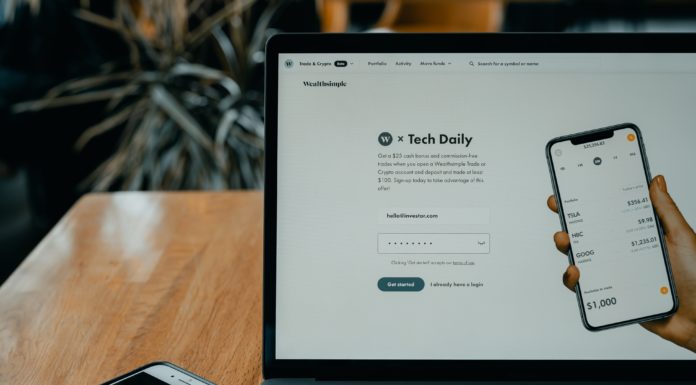Did you know that there are around 1.2 billion freelancers around the world? That’s ⅓ of the global workforce, by the way. Plus, considering that almost 90% of freelancers work from home, freelancing is predicted to grow even faster and farther because of the COVID-19 pandemic.
With the current statistics for freelancing, it’s not impossible for you to know a freelancer. In fact, you might even be one. Surprisingly, despite freelancing’s undeniable popularity, there are still many myths that surround it. In this article, we’ll disprove eight of the most common misconceptions about freelancers.
Myth #1: A freelancer has no boss.
If your idea of having no boss is having no supervisor looking over your shoulder or yelling at you to get things done in the office, then you probably will fulfill that in freelancing. But, technically, when you work freelance, you are still accountable to your client or clients. If you have ten projects for ten different people, then you have ten “bosses” who have the right to monitor you or remind (if not demand) you to finish a task. In truth, instead of one boss, you actually have lots of bosses.
The good news is that you can choose to stop working with a client who is too demanding, or who does not treat you the way you want to be treated. Just don’t forget that sometimes, you will have to be the one who adjusts. You can’t just quit working with anybody who doesn’t match your ideal standards. That way, there is still truth to the saying that “you are your own boss” when you work as a freelancer.
Myth #2: There is no security in freelancing
Generally, job security is hard to find in times of economic crisis, just like the state we are in today. However, if you compare a regular employee who relies on a single source of income to a freelancer who usually has multiple contracts, then there is certainly more security in freelancing. After all, it is not quite likely that all of a freelancer’s five or so contracts will end at the same time.
The fact of the matter is that freelancing has peak and lean seasons. Managing money wisely and planning properly is necessary in this job situation. Additionally, if you maintain an excellent work ethic, then you can build and maintain a roster of clients that will give you a steady income stream.
Myth #3: Freelancers can work in pajamas every day.
Think back to your early days as a freelancer. Did you usually get up and start working right away, even when you were still in your sleepwear? Most freelancers are guilty of this, so don’t worry. Comfort and convenience are important when working. However, as you have learned— or will learn— soon enough, trying to be productive while wearing clothes meant for relaxation is a huge challenge. Getting up and getting dressed can make a world of difference in your motivation and productivity levels.
Myth #4: Freelancing is less (or more) stressful than a full-time job.
It’s not easy to make a direct judgement about which is more or less stressful between working freelance or having a 9-to-5. On one hand, as a freelancer, you get to choose which projects to take, whom to work with, and how many hours you will be working. You can do many things without asking for permission, or “filing” for it. For example, if you need to take a month-long break, you can do that, as long as you arrange your schedule and obligations to your clients.
But on the other hand, freelancing has its own stressors, especially at the beginning. New freelancers know the difficulty of marketing themselves and finding reliable clients who pay well and communicate clearly. Also, in freelancing, you are in charge of filing your own taxes, fixing your own calendar, and improving your own skills. At the end of the day, you just need to choose what kind of stress you are willing to deal with, and manage time effectively so that you can lessen the stress.
Myth #5: Freelancers are lonely.
Working at home without any officemates can look like a lonely scene. However, some freelancers actually get called to work in the office, and a few choose to spend time in co-working spaces or cafes. Also, if you count virtual interactions (which are on the rise lately), then freelancing still offers a lot of opportunities for socialization, especially if you are part of an international team. Plus, you will need to retain contact with former colleagues and clients for possible collaborations. So, social skills are needed even among freelancers.
Myth #6: Freelancers make a lot of money (or none at all).
You may have heard others saying that there are several ways freelancing can make you rich, or you may have read that freelancers barely earn enough to make ends meet. It’s a bit confusing, right? That’s because the money you earn from freelancing largely depends on you, yourself. For instance, how many hours are you willing to spend on projects, and how much will you charge per project or per hour?
Determining the answers to these questions, especially the latter, also depends on your experience, skills, and network. If you are a seasoned freelancer with a solid reputation, then you can easily charge top dollar and choose to work fewer hours. However, that doesn’t happen overnight. You will need to build a great reputation before you can charge more. But if you’re willing to put in time and effort, then you won’t be penniless in freelancing.
Freelancing facts
The truth is that:
- Freelancers are accountable to clients.
- Freelancers can keep multiple contracts for security.
- Freelancers need to dress up, too.
- Freelancers have their own share of stressors.
- Freelancers know how to mingle.
- Freelancers can earn significantly if they work hard.




































